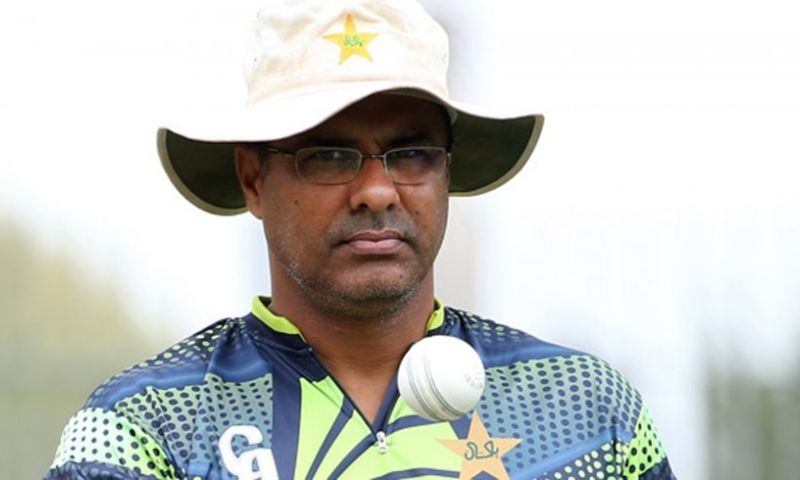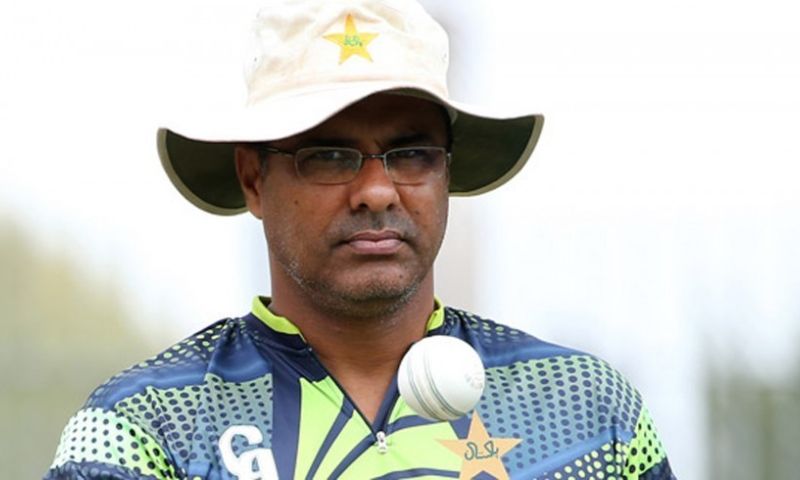Pakistan has another cricketing great in the office as administrator. With Waqar Younis’s induction Pakistan seems to have started following the right path and one sincerely hopes the former great will handle things in a proper and professional manner. Pakistan cricket needs proper guidance as it is fast slipping, both standard-wise and standing wise.
This will be the first time Waqar will be serving off the field. His on-field gigs were not as unsuccessful as people think or portrayed in the media. Two years or so after he hung his shoes, Waqar was given the responsibilities of bowling coach. He oversaw the development of Mohammad Asif, Umar Gul, Mohammad Sami, Shahid Nazir and a few others. But a year into his job he was replaced by Mushtaq Ahmed. An incensed Waqar blamed the then captain Inzamam-ul-Haq for his ouster. Waqar’s second tenure as head coach was slightly longer and more productive. Pakistan reached the semi-final of the 2011 World Cup — the only time they came in the last four between 2003-2023.

That tenure also saw the sordid match fixing episode on the England tour. It ended in life bans on Salman Butt, Asif and Mohammad Amir. Pakistan was beaten by India in the semi-final. He stepped down citing personal reasons. He was reappointed as head coach in June 2014 for a period of two years, and stepped down after Pakistan’s early exit from the T20 World Cup in India two years later.
Since the 2016 T20 World Cup, Pakistan’s national team’s performance has seen ebbs and flows. They reached the semi-final of the 2021 event, improved that with a runners-up finish the following year but had an abysmal showing in the 2024 event. The upsetting loss to newcomers the USA and spurning a good chance of beating India left big question marks on the set-up. Pakistan’s Test and ODI showings were worse. Pakistan have not qualified for the last four in the last three ODI World Cups. They finished sixth out of nine-team inaugural World Test Championship cycle 2019-21 and seventh in the second cycle 2021-23.

One of Pakistan’s myriad problems is domestic cricket. The structure of first-class cricket has changed more than one can imagine or keep track of. That has impeded the progress of our cricket. The gap between the standards of Pakistan’s domestic cricket and what we see at the international level is huge. Waqar’s first priority – praise for the Pakistan Cricket Board that it has kept as the main objective to achieve – is to reduce that gap. PCB has already announced a comprehensive schedule of the upcoming season. The best part of that schedule is that we will have Champions Cup of all three formats which will have five teams, a la Pentangular Cup. The best players of all three formats featuring in the Champions Cup will definitely improve the standard of the players involved and in turn reduce that gap. Waqar should be at the helm to monitor the progress of the players.
The second part is the facilities, primarily the pitches used for the domestic matches. Another good step taken by the PCB is the roping in of Australia curator Damien Hough. The Adelaide cricket ground pitches are proof enough that Hough will improve the quality of pitches in Pakistan. Once the pitches provide a balance between bat and ball and produce good competitive matches the standard will improve. But it will be a consistent process and should be monitored properly.

Another big problem which Waqar has to address is the progress of the players. Pakistan has lost a number of players who could not graduate from the Under-19 set up to Pakistan ‘A’ and from there to the Pakistan national team. It is a sad fact that around 80 players from India’s Junior set up progressed to play for the senior team while that number is not even half for Pakistan. This means our junior players are either de-tracked or not properly monitored. We need to have back up – at least five – of each player playing for the Pakistan team.
Apart from India, England and Australia also have a proper monitoring system. Australia had Pat Howard as their performance manager who helped achieve Australia a lot. He was replaced by Ben Oliver in 2019. England’s Mo Bobat has had a significant contribution in keeping track of the players. He left last year and England and Wales Cricket Board took no time in appointing Ed Barney so that the system continued. One of the best things to have happened to England cricket is the appointment of Rob Key as the managing director of England’s men’s team. England ‘s change in the style of play has been a key success and for that Key opened the lock.

Waqar Younis must take a leaf out of Key’s book. The way England have emboldened, not only their style of play but also the selection process. Some players were plucked out of anonymity, purely on their potential. The case in point is spinners Shoaib Bashir and Tom Hartley.
Waqar’s task is tougher than others. Pakistan’s system is ephemeral, not long term. Officials, fans and media are impatient. They want results in a trice, not at some price. Waqar will also face problems with the bureaucracy that exists in the PCB. To spend time in the PCB offices rather than on the field of play will also be a challenge for him.
Just like his aggressive bowling, toe-crushing Yorkers and dangerous bouncers, Waqar will have to take these challenges head on. Whether someone likes it or not, Waqar has that passion to serve Pakistan cricket. This is his second role to pay back what Pakistan cricket has given him.























